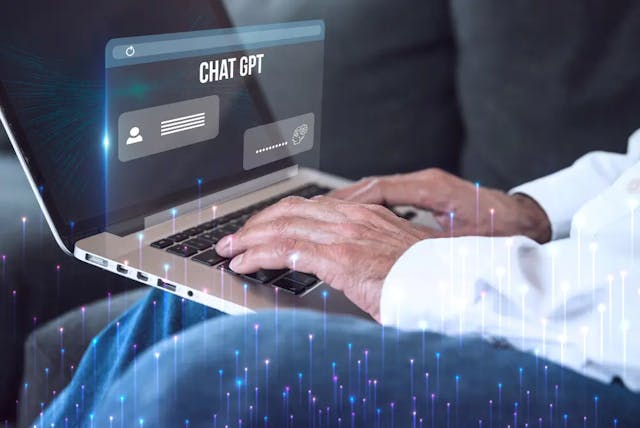Learning to code can seem like an intimidating mountain to climb, especially if you're just getting started. For many, it feels complicated and reserved for some genius-level crowd. I used to think that way too. I was convinced that programming wasn't for me because I wouldn’t be able to grasp all the technicalities. 😅
But here’s the truth: programming can be hard, but it's not impossible! It's challenging because it requires you to learn new concepts, think logically, and often, solve problems in isolation. So, why does it feel so difficult?
Let’s break it down!
Is Programming Really That Hard? 🤔
The answer is both yes and no. There’s no one-size-fits-all response because learning to program, just like any valuable skill, demands time and effort. If you’re motivated and committed, it’s totally possible to pick up coding—even if it feels like you’re learning a new language at first.
One of the toughest parts for beginners is understanding the technical jargon and grasping new concepts. If you have zero knowledge of basic programming terms like variables, loops, functions, and data types, then you're literally learning from scratch. And, yes, that takes time.
Programming also requires a hefty amount of logical and abstract thinking, which can be tough. You need to understand how things work behind the scenes without always "seeing" them in action. And let’s be honest, that can mess with your brain sometimes! 🧠
Additionally, many programming languages have steep learning curves, requiring you to remember and apply numerous new rules. Everything feels unfamiliar when you start, and that’s why the beginning is often the hardest part. But don’t worry—there’s a light at the end of the tunnel!
Another reason why programming can feel hard is because it’s often a solitary endeavor. You might not have friends or family around who understand what you're learning, and that isolation can be tough to handle. 😕
Not to mention, you’ll face tons of trial and error. If problem-solving isn’t your thing or if you get easily frustrated, programming might not be the best career option for you. Unfortunately, the life of a developer involves daily challenges that you’ll need to tackle head-on.
Staying motivated is another hurdle. Programming requires persistence, and you’ll need to adapt to a constant stream of problems that need solving. This might sound daunting, but trust me, as you improve, the joy of figuring things out will keep you going! 💪
The Mental Journey of Learning to Code 🛤️
Now, let’s talk about what the learning process looks like mentally.
Imagine you’ve decided programming is cool and you’re going to give it a shot. First off, congrats! 🎉 You're entering a world full of possibilities. But let’s be real—it’s not all sunshine and rainbows.
Here’s a mental map of the typical coding journey, inspired by this fantastic article Why Learning to Code is So Damn Hard.
Below is a diagram that roughly illustrates the coding learning curve over time and your confidence level.

Stage 1 – The Honeymoon Phase 🌟
At first, everything feels amazing! You’re learning something new every day, and it feels like you’re constantly leveling up. You’re likely following along with tutorials or courses, and because everything’s laid out for you, it all seems super easy. You're thinking, "This isn't so bad after all!" 😎
Stage 2 – Confusion Cliff 🤯
Ah, the Cliff of Confusion—welcome to the first real bump in the road. This is where you realize that programming is much harder than it seemed when you were just copying code from tutorials. Suddenly, you're asked to do something on your own, and that’s when the struggle begins.
All the stuff that seemed so simple when someone else was showing you suddenly feels complicated when you try to apply it yourself. The early excitement fades, and now you’re knee-deep in actual problem-solving. Many people give up here, but those who push through become better problem solvers. 💡
Stage 3 – The Desert of Despair 🌵
This is the long, lonely part of the journey where nothing seems to work, and everything feels confusing. It’s like you’re wandering through the desert, unsure if you’re making any real progress. You’re surrounded by shiny new technologies, languages, and tools, but no matter where you turn, you feel like you’re stuck.
At this stage, it’s easy to get distracted or discouraged. The key is to keep pushing forward, even when things seem impossible. Slowly but surely, you’ll start seeing the light at the end of the tunnel. Your knowledge starts coming together, and you realize you’re actually learning more than you thought! 🌈
Stage 4 – The Climb to Competence 🧗
Finally, the pieces start to fit. You understand more and more, and it feels like you're really getting the hang of things. You’ve fought through confusion and doubt, and now you’re ready to tackle more complex topics. Your confidence grows because you realize how far you’ve come.
You’re on the path to mastery, and you might even start feeling ready to apply for that first programming job. 🚀
Stage 5 – Job Hunting as a Junior Developer 👨💻
You’ve reached a level where you’ve got the fundamentals down and feel confident enough to start looking for your first junior developer job. But it’s not always smooth sailing here either. The competition is tough, and landing a job takes time.
During this phase, you’ll be working on personal projects, building a portfolio, and continuing to hone your skills. Applying to multiple jobs, facing rejections, and practicing for technical interviews are part of the grind, but perseverance will pay off. And before you know it, you’ll land that first job! 🎉
Is Programming Really THAT Hard?
Programming is definitely challenging, especially when you're just starting out. But like any skill, the more you practice, the easier it becomes. As you grow your problem-solving abilities and get used to thinking logically, you'll find that things start to "click."
One of the reasons programming feels difficult is that it requires you to break complex problems down into smaller, more manageable pieces. Then, you use logical reasoning to solve each one. This kind of thinking doesn't always come naturally and can take time to develop. 🤓
Another reason people struggle with programming is that it rarely goes perfectly. You’ll often think your code should work, but for some reason, it doesn’t. Debugging can be tedious and frustrating, but it’s part of the game.
There are also tons of programming languages and technologies out there. As a beginner, it can feel overwhelming to choose one or to know which tools to learn. And the tech world keeps evolving, meaning there's always something new to learn. But that’s also what keeps things exciting! 🎢
Despite the challenges, coding is incredibly rewarding. You get to create things from scratch, solve complex problems, and watch your work come to life. Plus, you’ll constantly improve as you continue learning and tackling more difficult projects.
Strategies to Overcome Coding Challenges 🚀
So, how can you tackle these obstacles head-on and make coding easier?
1. Start Small
Don’t try to learn everything at once. Focus on one language or one problem at a time. Start with the basics, like Python or JavaScript, and build your knowledge gradually. You’ll be surprised how much progress you can make with small, consistent efforts.
2. Practice Regularly
Consistency is key. Set aside some time each day or week to code, even if it’s just for 30 minutes. The more you practice, the better you’ll get, and soon, what seemed impossible will start to feel second nature.
3. Join a Community
You don’t have to do this alone. Join online coding communities, follow coding forums, or attend local meetups. Having a support system will keep you motivated and help you solve problems faster. 🌍
4. Embrace Failure
Don’t get discouraged by bugs or errors. They’re part of the process. Every error you solve is one step closer to becoming a better programmer. 💪
5. Build Projects
Apply what you’ve learned by building real projects. This not only solidifies your knowledge but also gives you something tangible to show potential employers. Plus, it's super satisfying to see your code come to life! ⚡
Final Thoughts: Is Programming Worth It?
Yes, learning to code is tough, but the rewards are totally worth it. Not only can you build awesome things from scratch, but the skills you learn in coding—like problem-solving and critical thinking—are valuable in almost every field.
With dedication, patience, and the right mindset, anyone can learn to code. It might take time, and it definitely won't be easy, but the journey is rewarding, and the opportunities in the tech world are limitless.
So, if you’ve been wondering if coding is for you, just remember: no one becomes an expert overnight. But if you stick with it, push through the hard parts, and keep learning, you’ll be on your way to success in no time. Happy coding! 😊💻








